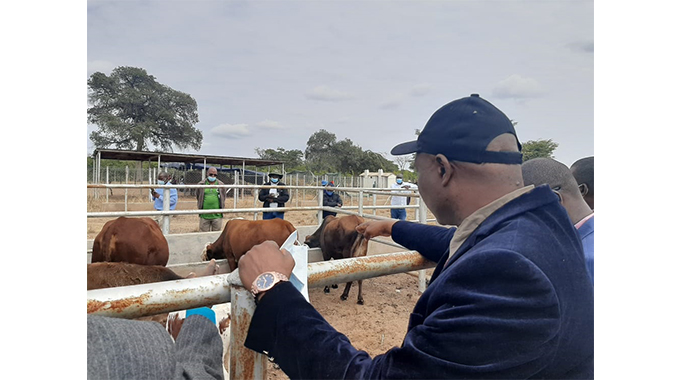50 000 households benefit from resilience building programme

Leonard Ncube in Victoria Falls
MORE than 50 000 households in Binga, Kariba and Mbire districts have benefitted from a resilience building programme meant to address food insecurity and poverty.
Six years ago Action Aid and partners Zimbabwe Environmental Law Association, Afro Soft Holdings, Africa Breeders Services Total Cattle Management with support from the Government started a resilience building programme called Zimbabwe Resilience Building Fund-Zambezi Valley Association (ZRBF-ZVA) targeting 45 105 households in the three drought prone districts.
In Binga the programme was implemented in all the 25 wards and reached out to 25 323 households compared to the targeted 21 771 households.
The overarching objective of the programme was to increase absorptive, adaptive and transformative capacities of the targeted rural communities by building resilience of the individuals, households and communities as well as protecting development gains and achieving improved well-being in time of shocks and stresses in a sustainable manner.
These were to be achieved through crop production, livestock, business linkages, disaster risk management, productive infrastructure and gender cross cutting issues.
Action Aid handed over the projects at a function held at Mandimoni Crop and Livestock Innovation Centre, one of the facilities built through the programme in Binga recently.

Minister Moyo officiating at handover of resilience project in Binga
Action Aid Zimbabwe country director Mr Joy Mabenge said the ZRBF-ZVA programme has managed to increase average monthly household income by 68 percent from US$57 to US$ from the 2020 and 2021 periods.
He said food insecurity also decreased from 65.4 percent in 2019 to 50.7 percent in 2020.
Yields for small holder farmers that adopted agroecological practices increased by 83 percent higher in small grains compared to provincial averages.
Two crops and livestock innovation centres were built in Siabuwa and Sinamagonde and a nutrition centre was also built in Chaflwe, seven dip tanks rehabilitated, one new one built in Chitongo, three boreholes drilled and eight rehabilitated, four piped water schemes in Mswazi, Chisamba, Chibila and Sinansengwe also rehabilitated.
Four poultry brooders were set up in Tinde, Sianzyundu, Siabuwa and Sinamagonde, and 30 water troughs constructed around the district.
Two seedbanks were set up in Mandimoni and Siabuwa, three goat feedlots in Mushumbi, Mahuwe and Sapa and two feedlots in in Mandimoni and Siabuwa.
The programme also facilitated genetic improvement of livestock through artificial insemination and introduction of exotic Kalahari and Boer goat breeds, and from 2019 to date, 10 415 goat kids were born.
The communities were also assisted with incubators to increase poultry production and also helped with value addition and improved market linkages through pen fattening.
People were also trained in drip system irrigation, water harvesting, and greenhouse nursery establishment as well as in financial inclusion as a safety net.
“The ZRBF-ZVA targeted 41 105 households and I am happy that the project has managed to reach 53 589 households through various interventions with 45 percent being female headed households in the three districts.
“The goal of the programme is to protect development gains and achieve improved well-being outcomes in the face of shocks and stresses through a set of interrelated activities,” said Mr Mabenge.
“I believe that the relevant line Ministries and communities at large will continue using these physical assets and knowledge to bounce back when affected by shocks and stresses.”
Matabeleland North Provincial Affairs and Devolution Minister Richard Moyo who was guest of honour at the hand-over of the projects, said ZRBF-ZVA is a long-term sustainable development programme, is contributing to increased capacity of communities to adopt and adapt to the recurrent shocks and stresses, enabling them to contribute to the socio-economic development of Zimbabwe in line with the National Development Strategy (NDS1).
“On behalf of the Government, I would like to take this opportunity to honour the good work done by the ZRBF-ZVA. The focus on promoting asset creation to build resilience of our Binga communities is life-changing and we will continue to support as Government,” said Minister Moyo.
He said the programme dovetails with Government efforts such as Intwasa/Pfumvudza Conservation Farming, which has enabled communities to absorb climate change induced shocks by embracing the transformative power of agroecology.
-@ncubeleon










Comments